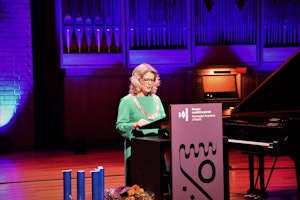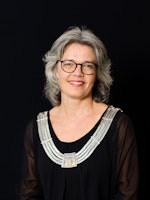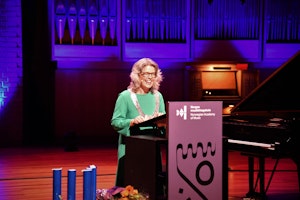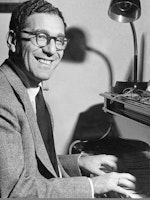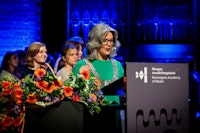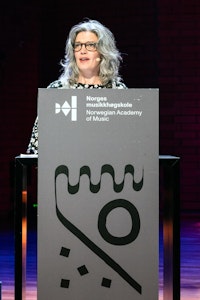It may feel paradoxical that we are celebrating now amidst a year characterized by struggle. Due to the global situation and the priorities set by our government, we enter this academic year with tighter financial constraints than we have faced in a long time. This is noticeable. However, we still know that we will continue to provide and deliver music education at a high international level this year and beyond. Thanks to all the resources we have at our disposal, most importantly, the human resources, which are primarily driven by musical and artistic forces.
Perhaps, in fact, times like these are when it's essential to showcase ourselves, as the anniversary provides an opportunity to do so – to show the world who we are, what we do, and what we mean to the entire society.
We are also pleased to welcome students from a wide range of countries outside Norway, even though some of them – those outside the EEA area – now have to pay a high fee to come here. A payment that we and many others have fought against.
On that note, I want to extend a special welcome to our international students and staff. This academy might be placed in the periphery, geographically speaking, but we have always strived to take part in a greater world, where musical traditions – be it jazz or other improvised forms, folk music or the so called Western classical and contemporary music – are shared across all sorts of boundaries.
Given these international ambitions, we are also excited about the participation in the European University Alliance IN.TUNE will bring. With funding from the EU, we will create projects and share practices between similar institutions in Belgrade, Vienna, Helsinki, Paris, Bucharest, the Hague and Barcelona in the following years.
We are looking forward to that, and looking forward in general. While at the same time looking back on the preceding years.
